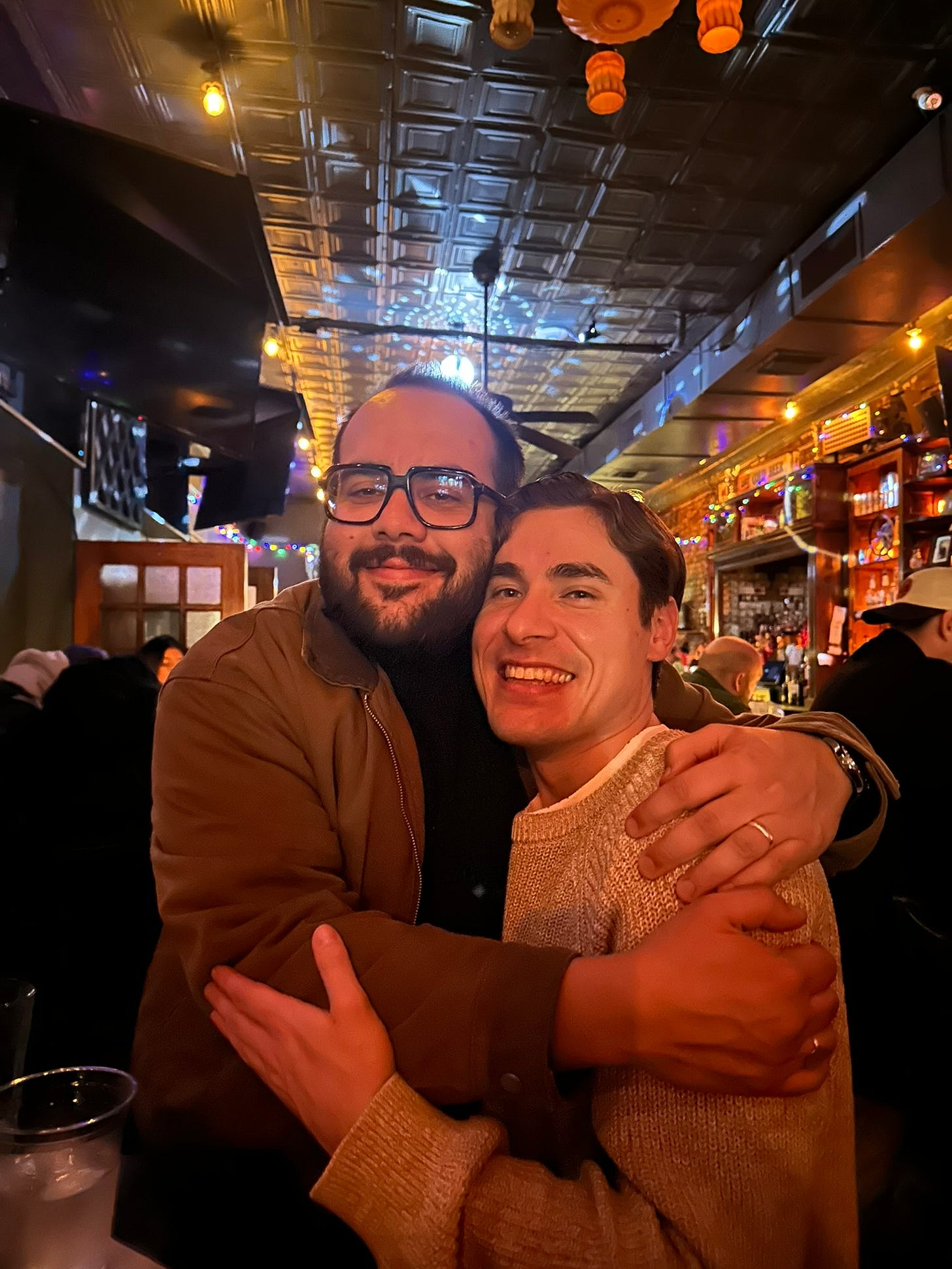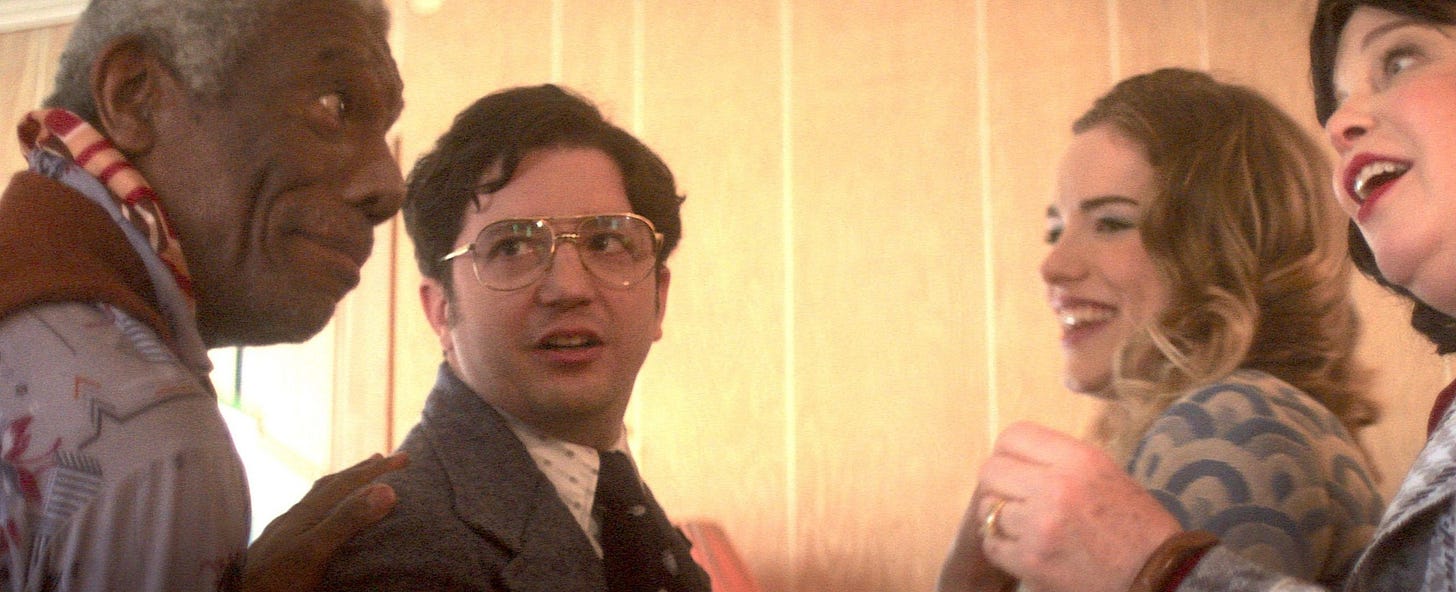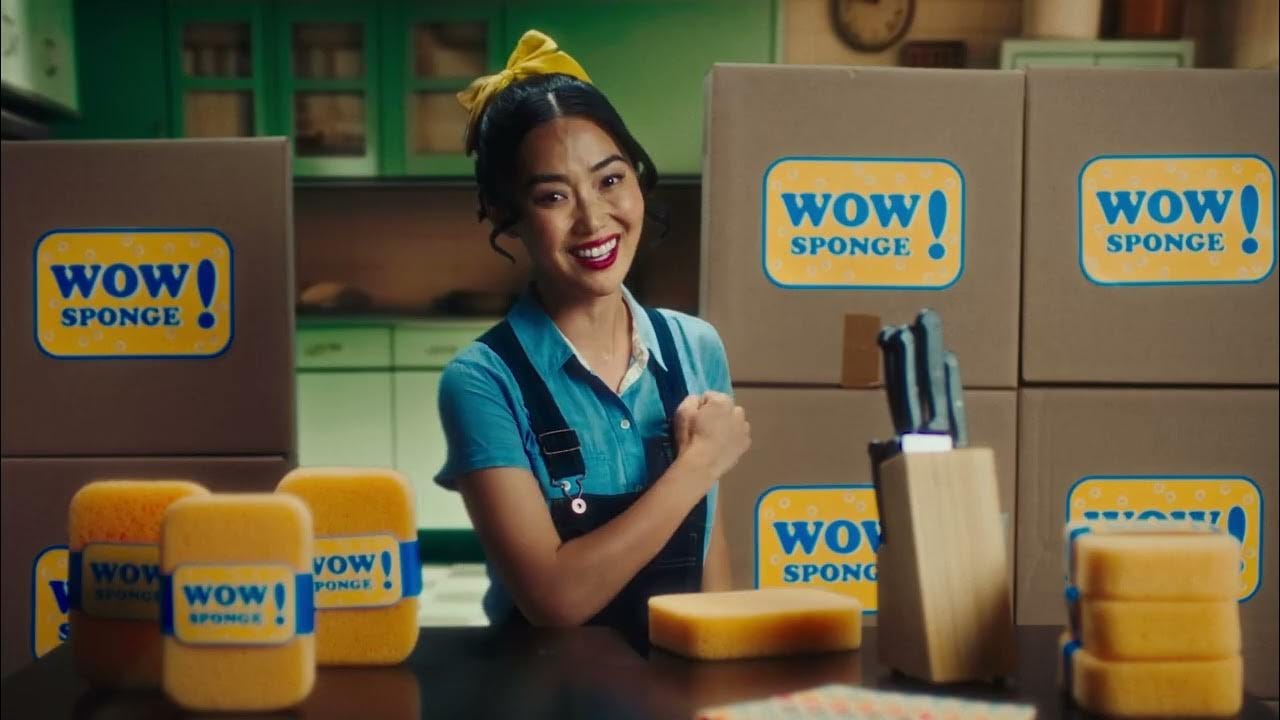In my experience, it’s not too common to have a friend who writes a movie. It’s even less common for that movie to get made, and even less common for that movie to be any good.
Against all odds, I have a friend who wrote a movie that got made and is very good—and it’s happened more than once! In the hopes of sharing that friend’s experience and writerly wisdom, I asked him to take one of our typically long-winded convos to email so it could be preserved for posterity, which he kindly agreed to.
His name is Daniel Moya, by the way—and of the many projects he’s worked on, the two we talk about the most below are the most recent two feature films he’s written.
The first is 18½ (2021), a riveting paranoid thriller by way of hangout comedy, set against the backdrop of Watergate. It was ahead of its time in casting its two leads—Willa Fitzgerald (The Fall of the House of Usher, Strange Darling) and John Magaro (Past Lives, First Cow, September 5)—and you don’t have to take my word that it’s good: take Matt Zoller Seitz’s or Richard Roeper’s.
The second is his newest movie, Trigger Happy (2025), a bleakly hilarious (or hilariously bleak) ode to American unhappiness that looks like a 1950s-set social thriller but plays like something more unique than that. Read on for Daniel’s thoughts on writing those movies and writing in general, and follow the links at the bottom to rent or buy both films—they’re well worth your time whether you’re friends with Daniel or not!
Justin: What's up, brother. I want to talk about both 18½ and Trigger Happy, but first I want to go inside baseball on the writing process in general. I know you like to write at Caffé Reggio, but what is your broader day-to-day approach to writing? When, where, how... do you type or write by hand... do you set daily goals... I'm interested in all of it!
Daniel: If it’s a project of mine, something original, an idea comes—a line of dialogue or an image or a character, something small—and I think about this small thing for a while. And when I sit to write, I write a first draft very quickly, usually in about three or four days, and then spend many months revising. I don’t formally outline or plan; part of the fun, for me, is seeing where the story goes via the writing itself.
I consider the act of writing to be as important as the thing I am writing. It is not just a means to an end. The process of sitting and typing and screwing up and torturing myself over minutiae and solving a scene and surprising myself is what I love most in the whole of filmmaking. I end up with a lot of material to cut or change this way, but I’d rather that; at a minimum, I know more about the characters the more I write about them, and that only helps.
I generally find that outlining or thinking in too much detail in advance of writing deflates the creative discoveries that sustain the intensive years-long circus of feature-making. I have probably started fifty screenplays that I never finished, and I don’t consider that a failure of preparation. I take it more as a (forgive this phrase) ‘medium mistake'—like the idea simply isn’t a feature, and whatever excited me about the first thirty-odd pages doesn’t fit the hour-thirty mold.
I prefer to write in cafés; there’s something romantic about it, I have to admit—some image of a ‘writer’ that I like to cast myself in. I drink a lot of coffee. I enjoy being a ‘regular’ somewhere. The Caffé Reggio is my favorite place in New York City, and when I go there I feel very much at peace. I find it difficult sometimes to focus at home. I don’t know why. Maybe home is for not-work. I think filmmaking blurs the line between work and life to a surreal degree, and a little separation is important. I’m finding it more important the older I get. Living alone as a younger person, there was nothing keeping me from staring at the screen at 4 AM trying to find the right way to say something. Now, I’m married, and hanging out with my wife is about one million times better. [Editor’s note: I originally met Daniel through his wife, so I can confirm she’s a good hang.]
As for routine… The energy behind a personal project comes and goes, intensity followed by reflection. If I’m working on assignment, the process is more structured, working daily as a rule in the established hierarchy of whatever organization was kind enough to hire me.
Love all of that. The idea of a "medium mistake" is especially helpful, and viewing both the successes and the missteps as productive parts of the process strikes me as a very healthy approach to writing (compared to, say, alternatingly feeling like The Best Writer Alive or a hack and a fraud—but I'm just speaking hypothetically, of course).
Both 18 1/2 and Trigger Happy circle a lot of ideas and themes without becoming overly didactic about any of them. I often struggle with writing too directly towards what I'm trying to say, but the stuff I enjoy reading and watching is usually the stuff that says what it says more obliquely. Since you don't like to outline, is that something you consciously think about while you're writing, maybe starting with a more obvious path to the ideas you want to write about and then paring it back? Or does the writing lead you to the themes in the first place?
My early drafts are always more obvious than later drafts. Figuring everything out in real time means I’m sort of talking to myself at first, and through revision, hopefully, the characters start to talk to each other. I like to do a pass once the narrative is hammered out where I remove any line I don’t like and then read the screenplay straight through; what I have found is that the script doesn’t always lose coherence when things are lopped off, and, in a strange way, it starts to read more fluidly. People are often saying what they don’t mean, talking around each other, answering a question with a question.
One thing that happens through revision, without fail, is the scripts get shorter. When I watch my stuff, the moments that rankle me are the overwritten ones. I can live with a plot hole if it advances the story. I find it harder to swallow when I didn’t trust the audience to figure out what a capable actor is silently portraying. I am firmly in the camp that a movie should ask—and not answer—questions, in form and function.
I spent ten years in acting school, ages six to sixteen, so I definitely try to leave room for interpretation in the text for the performer, and for the director, and for the craftspeople… The script isn’t a bible, it’s a map, and hopefully it’s rich enough to accept and get people excited to dig between the lines. This is a good time to mention that my films are very talky. (Hopefully less so as time goes on.)
But, talking about the marriage of theme and narrative, a sequence in 18½ that I still love is a particularly lengthy dinner sequence that comprises much of the middle of the film. It essentially resets the momentum, forcing the audience into a real-time and rather uncomfortable situation that our protagonists must escape in order to get on with things. We learn a lot about people, spend a lot of time and words on backstory and motivation, only to find, in the final set-piece (spoiler alert) that it was all lies. That, I think, was a good use of pages.
The scene that happened in the dialogue as written and the other scene that happened below the dialogue, each character aware that they are lying but unaware of who else knows. And the audience, too, wondering why—why are we spending so much time here, how do we escape—and therefore put squarely in the mindset of the protagonists… When you put that cast around that table, man. I was on cloud nine.
As far as themes go, that sequence, the stakes involved in seemingly trivial banter and the resultant deception, and the audience’s wondering like the protagonists how can we get out of here… It spoke to the paranoia of the era we were portraying in a small-scale, character-driven sense, and it felt like the right way to say something.
Well, to affirm your point about having confidence in the audience, I remember asking you to confirm something about 18½'s ending that I was pretty sure of but not 100% confident in—and your confirmation made that reveal a lot more satisfying than it would've been if the movie just very obviously spelled it out.
But I'm glad you brought up the dinner scene, because it really feels like the centerpiece of the movie. And like you said, it's working on multiple levels, playing off the tension of both the characters' specific paranoia and the broader Nixon-era backdrop. I know the movie sort of is and isn't about Watergate, but when you're working in such a widely covered period, do you feel a pressure to speak to something authentic about an age that we weren't alive for? And with a scene that's carrying so much narrative and thematic weight, is that something you start to feel the need for as you arrive at that point in the writing, or something that the scene reveals to you as you write it?
[18½ director] Dan Mirvish and I were adamant about the idea that the events of the film could have taken place in our world; in other words, the chaos of the movie, by the time it ends, should leave things apace in our actual, lived timeline. We weren’t rewriting history; it was like fitting a can in another can. This was a freeing limitation that meant, through research and conversation, we could mine the actual period for every ounce of dizzying subterfuge it was worth. (Maybe a bit more than it was worth, too. Why not?) I didn’t know quite what the lies within that scene would be before I started writing, but, similar to acting, in a way, I filled my head with a lot of preparation and tried to forget it when it came time to ‘perform.'
That's a good segue into Trigger Happy, which seemingly takes place out of time. Our modern problems are there (and hyperbolized), but there's also a retro/analog thing going on. When you're writing something more outright satirical, how do you pick your spots for where to heighten things and where to keep them relatively grounded? And does setting it in our-world-but-not-our-world help with that tonal balance?
I felt that Trigger Happy called for a more explicitly buck-wild approach. It deals with modern topics on a relatively small scale, it is a character-driven thing that makes points of its own. I chafe at ‘message’ movies, so I felt the best way into talking about what we had our sights on was to lean into American too-muchness, more, more, more, in drama, comedy, violence, scene-to-scene, moment-to-moment, consumerism and expansion. If the conflict is honest, if the characters are relatable (forget likable), then the world can do what it wants and we have something to anchor ourselves to. Plot ain’t the thing that sticks.
Tonally, Twin Peaks was an inspiration, though I’d bet Lynch is present in every American independent film in one way or another. This is the kind of comedy that needs its characters to suffer, and I tried for satire that would hopefully feel organic to their world, not necessarily our world (wishing, of course, for viewers to connect the dots themselves).
If I remember correctly, taking the movie out of the present day was a choice that Tiffany Kim Stevens, the director, had made before she brought me onto the project in the first place, and I thought it was an interesting way to help the film survive our current moment.
That brings up a good final question, I think: you’ve written scripts for other people like Dan and Tiffany to direct, but you’ve also directed yourself, and then you’ve written for other mediums like stage or print. Given your points above about leaving room for the director/performer and writing as its own kind of performance, how do you approach writing for different formats—especially something like a novel, where you’re sort of simultaneously writing/directing/editing and it’s up to the reader to “perform” it?
When I direct my own work, I try to take the writer out of me and look at the script as a thing to be interpreted. Speaking of format, I initially tried to write the idea that became my first novel as a pilot and got about twenty pages in before feeling that something wasn’t working. I had to be more interior than I could get in a script.
The book was difficult but its difficulties were ordinary. I enjoyed the book because the sentence is the thing. There is no budget required to bring the sentence to life—the reader will do that work, and it’s a different, maybe deeper interaction. I found that freeing.
When I finish something, I like it to be done—I don’t revisit it for a while, if ever, and if I do it always seems to me that someone else made it, which I sort of think is true. Any of these movies would be different if I wrote them today, so I’m glad I wrote them when I did. Revisiting them after some time makes me the ‘other’ performer and I enjoy the opportunity.
Well, I always enjoy anything any version of you writes, and I think anyone would!
That means you, reader—Trigger Happy and 18½ are both available now, wherever you get your movies. Tell ’em Justin sent you:
Trigger Happy (2025): Amazon | Apple








